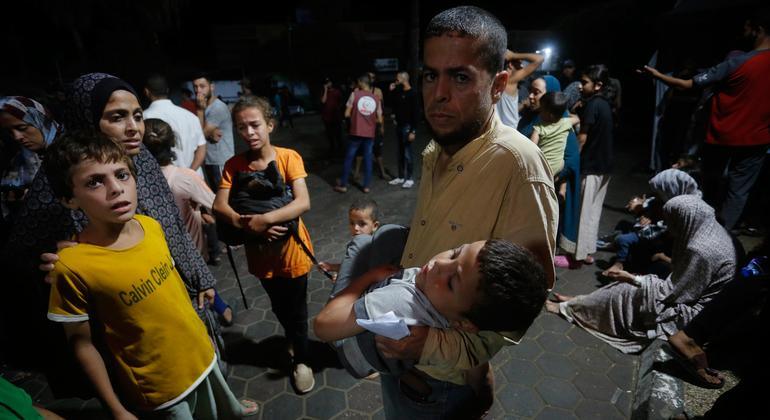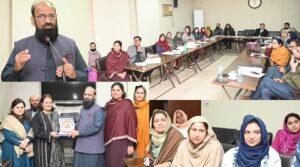The U.N. health agency said pauses in bombing are key.
“Humanitarian pauses are essential to their success, allowing partners to deliver vaccination supplies to health centers, families to safely access vaccination sites, and mobile teams of health workers to reach children in their families. communities,” the WHO said.
But due to escalating violence, heavy shelling, mass displacement orders, and the lack of safe humanitarian pauses in most of northern Gaza, the Gaza Polio Technical Committee was forced to postpone the third and last phase of his campaign, which was scheduled to begin today.
In a post on
This final phase aimed to vaccinate 119,279 children across northern Gaza.organized by the committee, which includes the Palestinian Ministry of Health, WHO, the United Nations Children’s Fund (UNICEF), the United Nations Palestine Refugee Agency (UNRWA) and partners.
Besieged and bombed
Right now, 400,000 people are trapped in the north, facing evacuation orders from the Israel Defense Forces (IDF) and constant bombing in the year-long war that began after deadly Hamas-led attacks on Israel and the capture of 250 hostages, more than 100 of whom remain in Gaza.
On Tuesday, UNRWA, WHO and other UN agencies asked Israeli authorities for immediate access to deliver life-saving humanitarian aid.
The UN health agency said current conditions, including ongoing attacks on civilian infrastructure continue to jeopardize the security and movement of people in northern Gaza, making it impossible for families to safely bring their children to be vaccinated.and health workers to operate.
Campaign ready to start
“It is imperative to stop the polio outbreak as soon as possible, before more children are paralyzed. and poliovirus spreads further,” the WHO said.
“It is therefore crucial that the vaccination campaign in northern Gaza is facilitated by implementing humanitarian pauses, ensuring access wherever eligible children are located.”
WHO and UNICEF urged all parties to ensure that civilians, health workers and civilian infrastructure such as schools, shelters and hospitals are protected and renewed their call for an immediate ceasefire.
To date, all logistics, supplies and trained human resources were in place to vaccinate children throughout northern Gaza with a second dose of the new oral polio vaccine type 2 (nOPV2) after a first round carried out throughout the Gaza Strip from September 1 to 12, 2024.
However, since the area currently approved for temporary humanitarian pauses was substantially reduced and is now limited to only Gaza City, a significant decrease from the first round, many children in northern Gaza would have been left without the dose. of the polio vaccine.
Polio returns to Gaza
After eradicating the disease a quarter of a century ago, Gaza reported its first polio case earlier this year. one of the consequences of a year of war and siege of the Strip, which has seen restrictions on the delivery of aid, damage and restrictions on access to critical water and sanitation services and overcrowding in makeshift shelters driven by repeated Israeli evacuation orders.
This prompted a rapid response from the WHO and its partners to deploy a campaign throughout the devastated Strip.
To interrupt the transmission and spread of poliovirus, at least 90 percent of all children in every community and neighborhood must be vaccinated. Polio causes paralysis and other serious symptoms and can spread quickly.
A delay in administering a second dose of nOPV2 within six weeks reduces the impact of two widely spaced rounds, which decreases immunity.
The UN, in collaboration with Palestinian health authorities, began vaccinating 640,000 children in the Gaza Strip in September. (archive)
The delay could threaten the region
A significant number of children not receiving their second vaccine dose will seriously jeopardize efforts to stop transmission of the virus, the UN health agency highlighted, adding that it could also lead to more cases in the Gaza Strip and countries neighbors.
Since the launch of the second round of the anti-polio campaign in Gaza on October 14, 442,855 children under the age of 10 have been successfully vaccinated in central and southern Gaza – 94 percent of the target in those areas.
A total of 357,802 children between the ages of two and 10 received vitamin A supplements as part of efforts to integrate polio vaccine delivery with other essential health services in Gaza.
Read our latest news on Gaza here.




